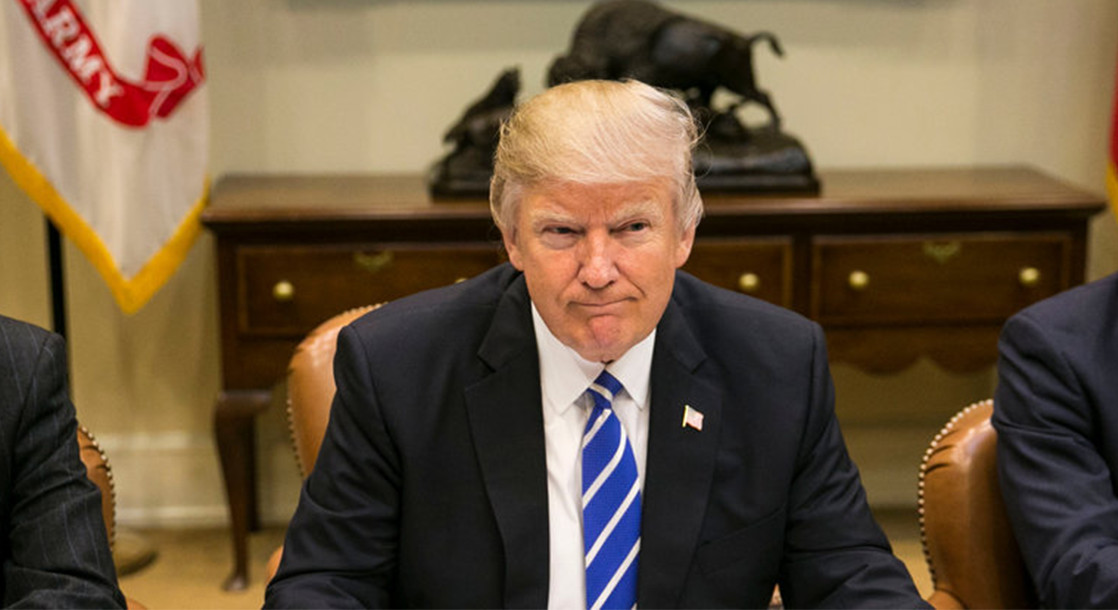After failing miserably to implement a Middle Eastern travel ban back in January, President Donald Trump is once again trying to flex his executive muscle over the nation's immigration policy.
Earlier today, Trump signed a revised executive order banning travelers from six Muslim-majority nations, excluding citizens from Iraq (at the insistence of the State and Defense departments). However, the measure will still deny entry into the United States to immigrants coming from Syria, Iran, Libya, Sudan, Yemen, and Somalia.
The revised order will also allow specific sets of people to apply for case-by-case waivers, particularly those who had been previously admitted into the U.S. for “a continuous period of work, study, or other long-term activity", as well as those with significant business interests or family living within the country.
Trump's latest move reiterates his campaign promise to white working-class voters that he would crack down on illegal immigration and prevent “radical Islamic terrorism” from spreading within U.S. borders. According to Secretary of State Rex Tillerson, Iraq was omitted from the new travel ban because of their important role as an ally in the fight against ISIS.
But critics have argued that Trump’s “extreme vetting” of immigrants from Syria undermines the screening protocol currently in place. Although Trump claims that the purpose of the ban is to prevent terrorism, there have been no recent attacks or shooting perpetrated by anyone in the United States from the six banned nations.
“The only way to actually fix the Muslim ban is not to have a Muslim ban. Instead, President Trump has recommitted himself to religious discrimination, and he can expect continued disapproval from both the courts and the people,” said Omar Jadwat, the director of the ACLU’s Immigrants’ Rights Project.
The latest attempt at implementing his infamous travel ban comes at a time of great turbulence in the Trump administration. Just last week, Attorney General Jeff Sessions was exposed as having failed to inform the Senate during his confirmation hearing of his contacts with a Russian ambassador during the 2016 election, potentially committing the serious offense of perjury. Interestingly, Sessions was the one tapped to publicly announce that a revised executive order had been signed.
It remains to be seen whether Trump’s new travel ban will face the same judicial hurdles that his first one did, but the controversial order will almost certainly continue to receive serious dissent from progressives and immigrants all across the country.











